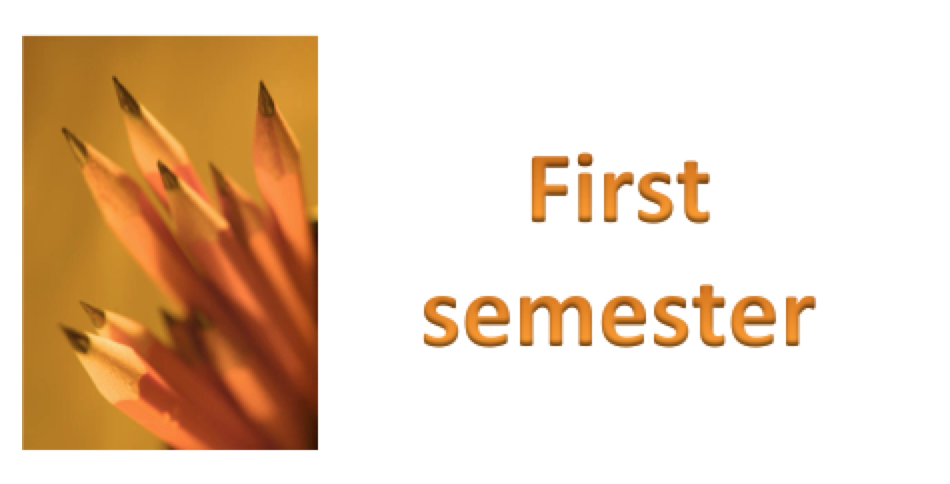5 helpful tricks to land yourself a job/internship
I know that coming from a middle-class background in India, getting a job is the utmost priority for a lot of you when you come to the US for your graduate studies. If you don’t get a good job after you graduate “achhe rishte kaise aayenge” :P. So to make sure that your parents have enough to brag about their special kid in front of your relatives and you get the best proposals suited to your NRI launda/ NRI kudi image, here are some pointers to help you get a good job when you graduate:
- Diversify your subjects: This is the same advice that is given by successful investors to minimize the risks of the market. If you take courses from a varied stream of subjects you simply establish your eligibility to interview with a huge range of companies. By a varied stream of subjects, I don’t mean subjects from different disciplines (art/dance/music/electrical engineering/computer engineering/civil engineering etc), I just mean different areas of specialization within your discipline. Although no one stopping you from getting into that dance class and living your “Dirty Dancing” dream (no not the dirty dirty kind :P), although no one’s stopping you from….. :D. The first semester of your graduate program should be specifically dedicated to trying out the breadth of courses offered in your discipline. You can work your way into the depth of any one or two fields of your interest in your later semesters.
- The *: If you are not from a computer science-based major, you can try to take a couple of courses from that field. It never hurts to keep a backup option, particularly if there aren’t many companies in your discipline or if the companies in your discipline tend to prefer American citizens only (maybe because of a government regulation, or something similar). If you do intend to go this route, I’d suggest taking a basic programming course and one other course in any area of specialization of your choice (cloud computing/web development/machine learning are a few choices that are currently popular with recruiters)
- Actions speak louder than words or in this case projects speak louder than classes. I’ve come to realise that the American schooling system is built around assignments and projects (at least at the college level). It’s no wonder that websites like Coursera and Udacity offer the content of the courses for free and charge you only if you choose to take the graded assignments. The course projects not only make a good impression on the prospective recruiters but also make you an expert in the field (I guess that’s why it makes a good impression on the recruiters :P). It’s also worth mentioning here that it is better to take a project based tough courses and get a bad grade than taking a purely exam-based easy course and acing it. For the most part, companies here do not have any eligibility criteria based on your grade points and even if they do they are pretty lenient.
- Keep your last semester free: Take as few courses as you are legally required to take in the last semester of your program. This could help you in more ways than you can imagine. For starters, with less coursework to deal with you’d have enough time to prepare for the interviews and go through all the major projects that you’ve done for the entire duration of your graduate studies (and possibly undergraduate projects too). One other important thing that people don’t realise in the starting is that most probably you’ll have to fly to different cities for interviews. You really don’t want to be worrying about your submission deadlines when you’re in a hotel preparing for the interview on the following day. On a side note, it is a very pampering experience, hopping from one hotel to another trying to accommodate as many interviews as you can in a single trip :D. Finally, at the very end, you should give yourself some time to relax after all the sleepless nights you put in in previous semesters and try to relieve the post-placement era of your undergraduate college life. Trust me this will be the last time you can freely enjoy without worrying about going to work the next morning. Man! College days were the best
- Revamp your resume: There’s only one advice that I find apt when it comes to writing a resume: The KISS principle. No, it does not refer to the technique of kissing (although when I come to think of it, it can surely be applied to that as well 🙂 KISS stands for “Keep it simple, stupid” with various other variations like “Keep it short and simple” or “Keep it short, silly” but you get the point. Don’t try to over-complicate your resume. As a basic rule of thumb, your resume should not be longer than one single page, particularly if you have only a few years of experience (say less than 5 years). Recruiters are not going to read the entire thing anyway as mostly they are on the look out for specific keywords and titles so why not just write what they want to read. For positions straight out of a grad school in the US, you can skip the extracurriculars section altogether and just focus on the courses and projects you have done. You can even try to customize your CV for different roles you are applying for, highlighting one kind of projects for one role and some other kind, for other roles. In the end, just remember that your resume is your ad and the recruiters are your prospective buyers, give them what they need in order to “buy” you 😉
- Get your research right: Before you come screaming at me “but I’m not in a research-oriented graduate program”, let me make it clear that I’m not talking about your graduate research. This research is similar to the research you did for your graduate applications. Try to read about the company’s work culture, vision for the future and employee reviews before you decide whether you want to join that company. This is very important because you really want to be sure that you are aligned with the company’s culture and vision if you want to have a couple of (maybe more) peaceful years. Glassdoor is a very helpful resource for this kind of information. Also when you are prepared with this kind of research about the company, not only you are more confident, you also leave a lasting impression on the recruiters. Apart from giving you the insider view of the company, Glassdoor also gives you an idea of the recruitment process and the types of questions that are generally asked in their interviews.
BONUS: As a reward for reading through the whole article, here’s one bonus tip: Maintain a list of contacts: It’s good to maintain a list of all the recruiters you meet in the career fairs or those who get in touch with you or your friends for any opportunities in their companies. The reason why this is important might not be clear to you at this point of time but later on, if you want to switch jobs you can just reach out to different recruiters from this list and get started with the interview process. You can also give this list to your friends who are still looking for jobs near the end of the last semester…. they’ll thank you a lot for that 😉
These were a few tips that we thought can be helpful when you’re job hunting. Let us know in comments if you find them useful 🙂
Cheers!




Recent Comments